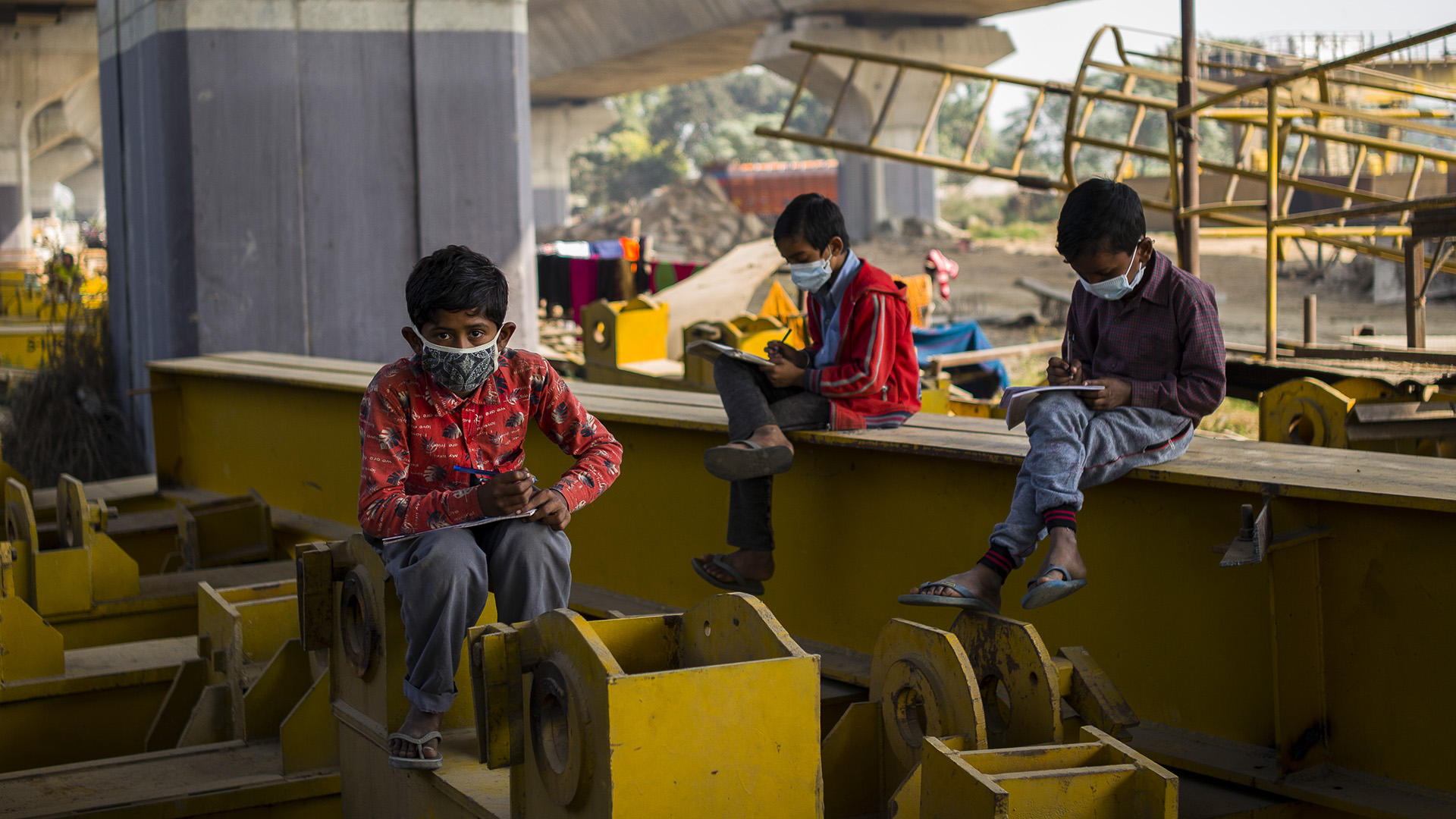

NEW DELHI — A non-governmental organization — HOPE Community School — with their new initiative of ‘Schools on Wheel’ is putting efforts to take education and classroom learning closer to children amid the Covid-19 pandemic.
The school is helping the underprivileged children learn through their mobile buses that intend to take education closer to the children amidst the hard times.
Due to the Covid-19 pandemic and consequent restrictions, the education sector has been adversely affected. For many, now classes take place online through their smartphones and the internet. However, this kind of education is still inaccessible to many.
“Through the ‘Hope Buses,’ we aim to go to kids, especially in underprivileged communities, because they don’t have access to schools,” said Marlo Phillip, founder of Tejas Asia.
“We want to take schools to where they are. It is our dream. We have seen that this initiative has changed many lives. We also give them a mid-day meal which is cooked in our Hope Kitchen in Tughlakabad.”
He said that the concept was started 7 years back. They currently utilize four buses that go to different locations in Delhi.
“About 7 years ago, we started the concept of taking education onto the wheel. We have got 4 buses at the moment, and every day the bus starts from Saket,” said Phillip.
“We take buses to different locations in Delhi. We have recently started a project in Gurgaon as well. We have a Hope community school. Every day, around 1000 children are given free meals and free education.”
Students are also pretty happy with this initiative and the way it has helped them catch up with their education.
Sapna, an 11-year-old, used to go to school in Madhya Pradesh before the pandemic hit. Due to school being shut, she lost track of her studies. Now that the mobile bus service has started again, she is delighted.
“I aspire to become a police officer,” said Sapna.
“I learn good things here on the mobile bus. When I go home from here, I will take my notebooks and will learn.”
“I used to go to a nearby government school. Since the schools are closed, I am coming here to study,” said Preeti, one of the students on the mobile bus.
“The pandemic was very tough,” said Phillip.
“All the kids were asking about the bus since this is their school. We had to wait for the government to permit us. In the last few days, we have started to go to a couple of locations, and kids were happy to jump inside the bus. The number of children has increased after Covid-19. I believe that Hope buses are bringing hope in their lives.”
He said that it takes at least six months to develop a proper relationship with people wherever they go. They provide educational equipment on the bus. Parents are happy with this initiative of education for the underprivileged in buses.
“I send my child to study on the bus so that they do a little better in their lives,” said Aaspati, father of a student, who is a rag picker.
“Our lives can also be better through this. We are just trying to push our children.”
Babli, another rag picker, also said that the family is not educated enough to ensure that kids learn at home. They have started sending their children to these mobile buses for their education.
Ebina, the bus leader, said that surveys are utilized to find out the children who need their services, and they also enroll children in government schools if there is potential in them.
“Once we find a location where there are kids with no education, we do a survey, and we find out how many kids are not going to school and what are the reasons behind it,” said Ebina.
“If we find that there is a need, then we start a bus project in that locality. We have four busses which go to 8 locations, one in the morning and the other in the evening. After making them study for 2 hours, we provide them food and make them go home. We make them learn basic education like language, basic math skills. After seeing that there is some potential in a child, we enroll them in government schools.”
A total of 320 million learners in India have been adversely affected by the Covid-19 pandemic and have transitioned to e-learning, as per reports by the World Economic Forum. With huge regional and household disparities in access to the internet and technology, this transition has not been possible for all students and educators.
(With inputs from ANI)
Edited by Saptak Datta and Ritaban Misra
The post “Schools On Wheel” Run By Non-governmental Organization Help Children Learn Amid Covid-19 appeared first on Zenger News.


